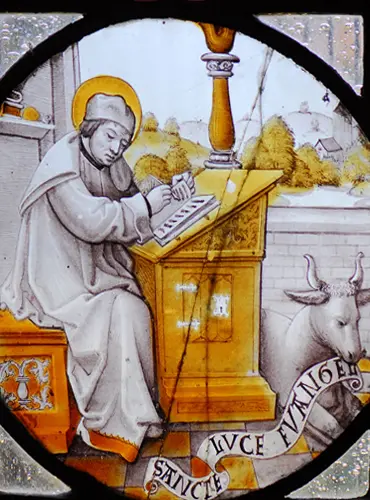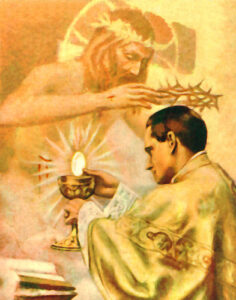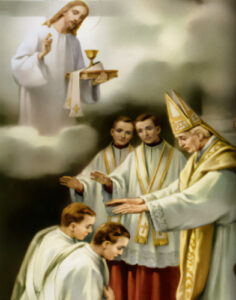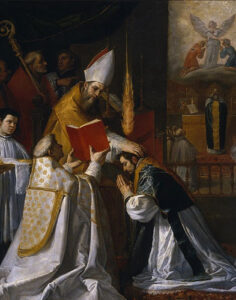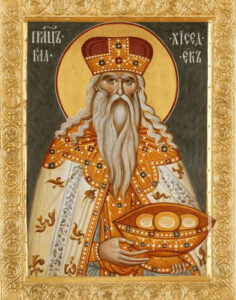Saint Luke – October 18th
Today we celebrate the feast of Saint Luke, the evangelist, who authored the Gospel that bears his name, as well as the Acts of the Apostles. Tradition holds that Luke was a physician, a fact attested to not only by a passage from Paul’s letter to the Colossians, where he writes, “Luke the beloved physician sends greetings” (4:14), but also from the very precise medical terminology he uses throughout his writings. For instance, when describing the snake that bites Paul in Acts 28 (3-6), Luke employs a very specific word that means not only did the snake bite him, but it also poisoned him. Yet, miraculously, the Apostle to the Gentiles was unharmed.[1] Likewise, in his account of the miraculous healing of Peter’s mother-in-law, Luke describes the illness using the precise term, “a great fever,” whereas Matthew and Mark omit the details, and simply describe it as a fever. Luke’s writings are filled with many such insights, and we can see how God made use of Luke’s experience and training to more fully reveal the greatness of the miracles that Christ performed while on earth.
This attention to detail reminds us of just how much God looks after us, tending even to the smallest things that concern us. Certainly the illnesses of those found in Luke’s Gospel didn’t seem pleasant or like a good thing; yet, it was through them that those who were suffering were led to Christ and were able to draw near to Him. Luke sees these things for the sufferings that they are, as great and as severe as they might be, but these insights only serve to magnify the greatness of the God who is able to heal them instantly.
Likewise, we’re reminded that Christ is the Divine Physician, who is present with us today and heals every one of our ills. Sometimes this takes place in a physical sense, particularly with the anointing of the sick; indeed, Christ made the healing of the sick an important part of the proclamation of the kingdom, and we can see how great His power is since His apostles, who were not physicians, were able to heal those who were ill. However, this healing can always and everywhere take place in the sense of healing the wounds caused by sin. The Catechism (1484) reminds us that “Christ is at work in each of the sacraments. He personally addresses every sinner: ‘My son (my daughter), your sins are forgiven.’ He is the physician tending each one of the sick who need him to cure them.” All we need to do is draw near to the Divine Physician in humility, and ask for healing.
Today, through the intercession of Saint Luke and Mary, Health of the Sick, for the grace to endure whatever sufferings come our way as signs of God’s love for us, and to seek our refuge in Christ, the Divine Physician.
[1] See, for instance, “Commentary on Luke’s Gospel with Emphasis on Medical Terms,” by Dr. Thomas M. Strouse, and “Medical Terminology in Luke” by Reuben A. Hubbard.

